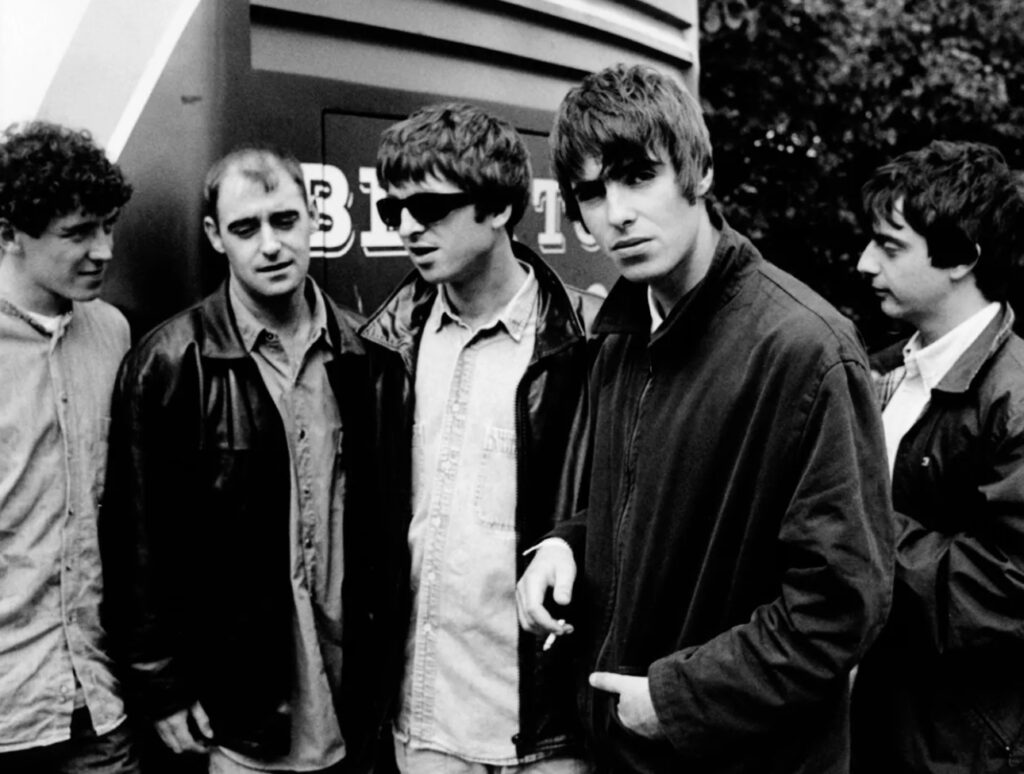In the endless hallways of rock’s memory, certain songs cling to the walls, stubbornly refusing to fade. But even among these immortal echoes, a few remain paradoxically both influential and underappreciated — not forgotten so much as overlooked in the rush of louder mythologies. Among them stands The Kinks’ 1964 hit “You Really Got Me”, a song that, in just over two minutes, detonated conventions, rewrote the possibilities of the electric guitar, and quietly paved the road toward garage rock, hard rock, and even the early stirrings of heavy metal.
Though hailed in its time as a success — it reached No. 1 in the UK and cracked the American charts — “You Really Got Me” often slips through the cracks when the pantheon of classic rock is recited by rote. Yet few songs from that embryonic period of British rock sound as vital, as aggressive, and as ahead of their time as this primal, jagged burst of electricity. It was, in many ways, a different kind of music, one that changed the cultural and sonic landscape more radically than its more polished peers.
To revisit “You Really Got Me” is to rediscover a moment when rock and roll lost some of its sweetness, when roughness and immediacy triumphed over gloss and politeness — and when a teenage band accidentally invented the future.
The Birth of the Riff
The center of “You Really Got Me” — its molten core — is the guitar riff. Three chords, simple and devastating, slashed across the airwaves like a razor. Dave Davies’ distorted guitar tone, achieved by slashing his amplifier’s speaker cone with a razor blade and poking holes into it with a pin, produced an unprecedented snarling, fuzzy sound that redefined what an electric guitar could express.
Before “You Really Got Me,” guitar distortion was often a byproduct of faulty equipment, an accident to be cleaned up in the mix. The Kinks weaponized it. In Davies’ hands, distortion became not a flaw, but a form of speech — raw, emotional, violent. It was the sound of frustration, desire, rage, all compressed into a sequence so elemental that it seemed almost prehistoric in its power.
In retrospect, it’s astonishing how far ahead of its time this decision was. Within a few years, the distorted guitar riff would become the lingua franca of hard rock and heavy metal, forming the DNA of bands from Led Zeppelin to Black Sabbath. Punk rock, too, would take cues from its snarling immediacy. In that sense, “You Really Got Me” wasn’t just a hit — it was a rupture in the musical continuum.
Simplicity as Revolution
Much of the innovation in “You Really Got Me” lies in its refusal to complicate itself. The lyrics are minimal, a repetition of urgent, almost desperate desire: “Girl, you really got me going / You got me so I don’t know what I’m doing…” This directness was a stark contrast to the often florid lyrics of other contemporaneous pop hits. Ray Davies didn’t couch his emotions in metaphors; he screamed them.
This primal emotionality, combined with the band’s rough, almost careless delivery, gave the song a feral energy absent from the more polished British Invasion acts like The Beatles and The Hollies. Where others were crafting intricate harmonies and charming melodies, The Kinks sounded like they might tear their instruments apart onstage. Their version of rock was leaner, meaner, and infinitely more dangerous.
The stripped-down structure of “You Really Got Me” also anticipated the ethos of garage rock, a genre that prized immediacy over musicianship and feeling over finesse. Bands like The Sonics, The Seeds, and later The Stooges would owe a profound debt to The Kinks’ insistence that rock need not be perfect to be powerful.
Context and Collision
Placed in the context of its time, the arrival of “You Really Got Me” feels almost miraculous. 1964 was the year the Beatles invaded America, the year of “I Want to Hold Your Hand” and “She Loves You” — songs brimming with youthful optimism and melodic sophistication. Meanwhile, across the Atlantic, Motown was perfecting its polished soul symphonies, and surf rock kings like The Beach Boys were layering lush harmonies over bright, sun-drenched arrangements.
Into this atmosphere of high craftsmanship and technical polish came “You Really Got Me,” a jagged, garage-born riot barely two and a half minutes long, sounding less like a finished record and more like a live electrical fault captured on tape. It was almost aggressively unsophisticated — and that was its power.
What The Kinks revealed was that there was an audience hungry for something rougher, realer, and more raw. It wasn’t about showing off musical skill; it was about capturing a feeling, an energy, and bottling it just long enough to throw it into the world.
In doing so, they opened the floodgates for a thousand bands who would otherwise have been dismissed as “unrefined.”
The Chain Reaction: Legacy and Influence
“You Really Got Me” didn’t just influence rock music — it fundamentally altered its trajectory. Without it, the rough edges that defined so much of late ’60s and early ’70s rock might have remained hidden under layers of polish.
The most obvious disciples were bands like The Who and The Rolling Stones, who took the rawness The Kinks hinted at and built towering legacies of rebellion and noise. Hard rock and heavy metal acts — from Cream to Deep Purple to Led Zeppelin — expanded on the riff-centric model that “You Really Got Me” pioneered, amplifying its aggression to stadium-filling proportions.
Even further down the evolutionary line, punk rockers in the mid-’70s would cite The Kinks as critical influences. The Ramones, The Clash, and The Sex Pistols all carried within their DNA a piece of the sonic rebellion that The Kinks unleashed.
Today, the song’s lineage can be traced through garage rock revivals, indie noise bands, and even elements of grunge. Whenever a young guitarist stomps on a distortion pedal and plays a two-chord riff with conviction, the spirit of “You Really Got Me” flickers back to life.
An Accidental Revolution
Part of the enduring fascination with “You Really Got Me” lies in how accidental it all seems. The Kinks were, at the time, just another struggling British band looking for a hit. Their previous singles had flopped. Their producer, Shel Talmy, desperate to find something that would connect, took a gamble on a sound that felt raw and messy.
Ray Davies reportedly wrote the song after an awkward, frustrating romantic encounter, capturing that confusion and intensity in a lyric that was at once painfully simple and universally resonant. Dave Davies’ shredded amplifier and unorthodox recording techniques were born out of necessity and experimentation, not a conscious attempt to change rock history.
In many ways, “You Really Got Me” is a testament to the fact that true innovation often springs not from grand designs but from urgent, imperfect attempts to express something honest.
Conclusion: The Wild Spark That Still Burns
In an age when “classic rock” often feels embalmed, overplayed, and polished into safe nostalgia, “You Really Got Me” still sounds dangerous. Its rawness is uncontainable, its simplicity still radical. It reminds us that rock and roll at its core is not about virtuosity or perfection, but about friction — between desire and frustration, between melody and noise, between control and chaos.
The Kinks, with “You Really Got Me,” lit a fuse that countless others would later follow. They didn’t just make a hit record; they cracked open a new way of thinking about sound, performance, and emotion.
That the song sometimes gets lost amid the more grandiose mythologies of classic rock only deepens its mystique. It was never meant to be polished into legend. It was meant to be shouted into the night, half-mad, wholly alive.
And shout it still does.
No comments yet.








